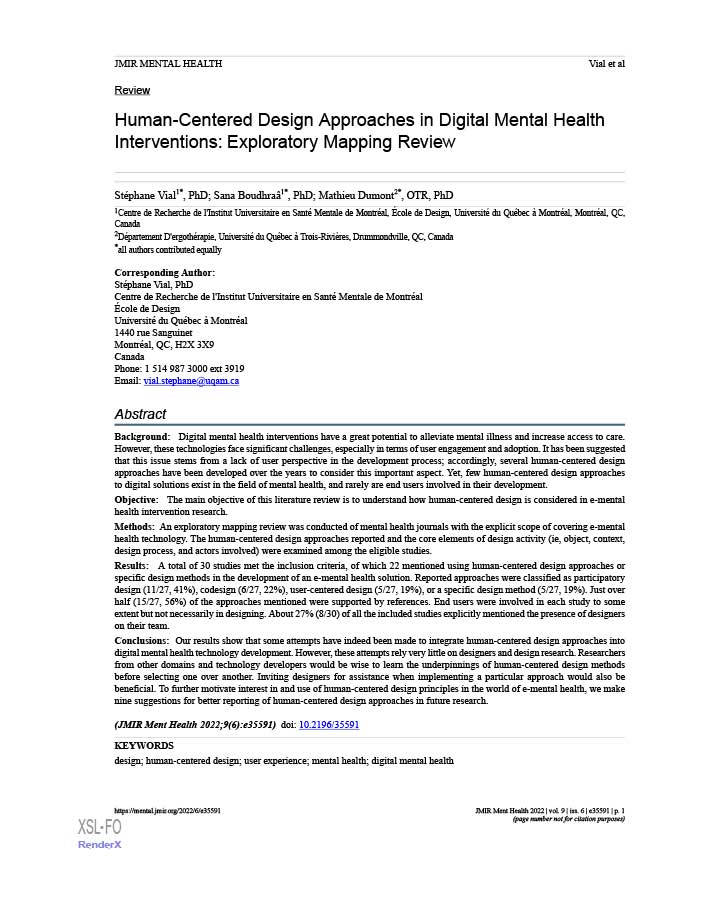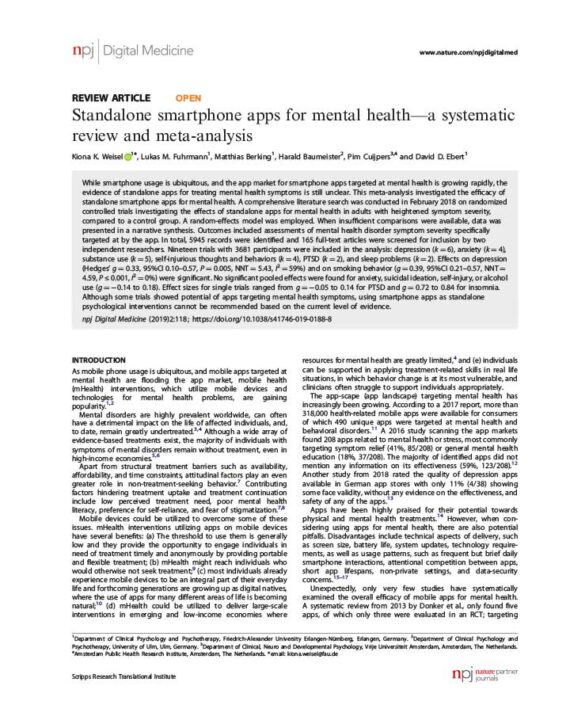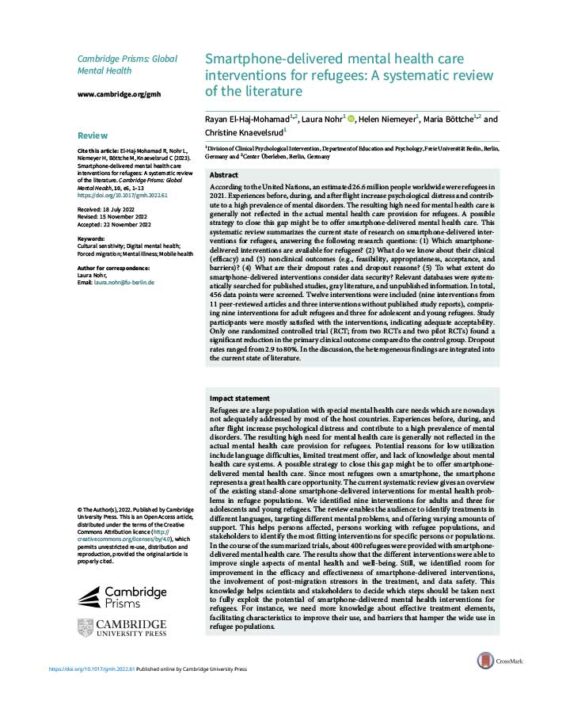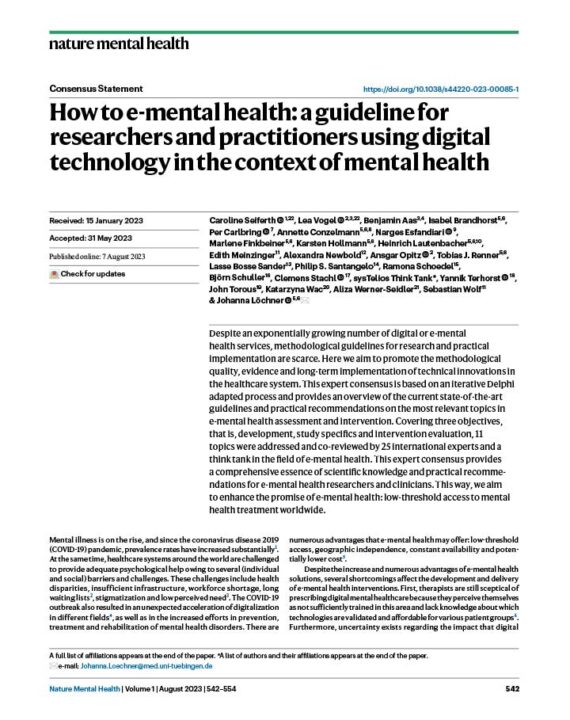The main objective of this literature review was to understand how human-centered design is considered in e-mental health intervention research. The exploratory mapping review shows that some attempts have indeed been made to integrate human-centered design approaches into digital mental health technology development. However, these attempts rely very little on designers and design research. To further motivate interest in and use of human-centered design principles in the world of e-mental health, the authors presents nine suggestions for better reporting of human-centered design approaches in future research.
information
Human-Centered Design Approaches in Digital Mental Health Interventions: Exploratory Mapping Review
Information
English
2024
pdf
Translations
No translations available






